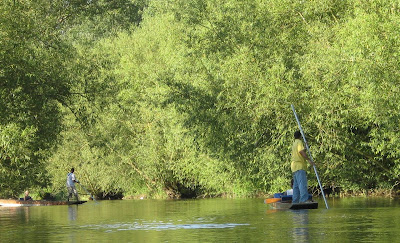If I can claim any useful role whatever in science, it is very much more at the level of communicating science to the general public with enthusiasm, often using kitchen analogies (which might be wrong, but they are still useful).
Even some of my colleagues (only some!) make the mistake of attributing me with greater technical knowledge than I deserve. I guess this is because I can apply technical rules and rationale in the operation of complex plant and I have a broad range of technical knowledge, rather than much depth on any particular topic. This means that I will soon get out of my depth on any one topic, but I might spot surprising parallels with other related topics - things that are not visible to those who specialise. I might also be more aware of some of the common logical fallacies than most people - including many of those with more science training that I have had.
My skills do not lie in mathematical analysis or deep familiarity with many of the complex concepts that physicists find useful when they are building models to explain how the universe works.
This is exemplified by the first question that I always ask, in the event that someone invites me to proof-read a technical article.
How many equations are there in it?
Most people who hear this for the first time will give me a quizzical look and then give a tentative answer.
I ask it for a good reason. As a rule of thumb, if any article has more than two equations to back up its reasoning, then it is unlikely that I will understand it well enough to do justice as a proof-reader. My mind just doesn't work that way. On the other hand, if you give me a bit of text to read for logical consistency, and spotting of spelling and grammar errors, then I feel that I might be able to contribute.
To many scientists this might seem intellectually sloppy, and it is something that I find slightly embarrassing. Since I work with so many intelligent people, I'm glad to say that it is not completely disabling. A colleague who is a specialist on the study of neutron spectroscopy (or something like that) recently said to me
"The trouble with inviting you to design reviews is that you always ask really difficult questions."
That compliment made my day! I think he really means that I ask pragmatic or practical questions, but I'm glad that at least someone thinks they are good ones.
Small note: I mention the two equation test because I have been reading Victor Stenger's book, The Fallacy of Fine Tuning. More on that later in the week!
















